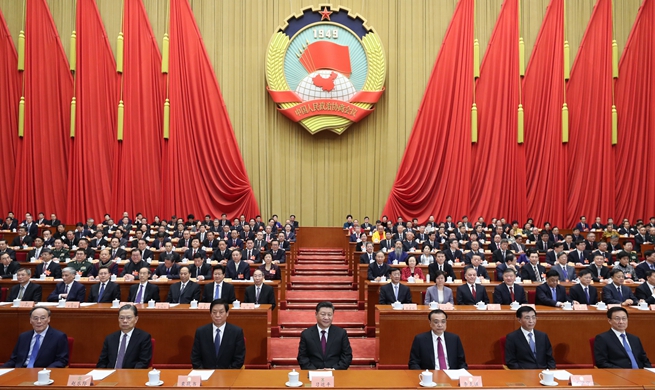KUALA LUMPUR, March 4 (Xinhua) -- Malaysia's exports grew 3.1 percent year-on-year to 85.41 billion ringgit (20.97 billion U.S. dollars) in January as exports to China remained steady, official data showed Monday.
The Malaysian International Trade and Industry Ministry said in a statement that Malaysia's trade in January expanded by 2.1 percent year-on-year to 159.3 billion ringgit, underpinned by the expansion in trade with China, Saudi Arabia, South Korea, Thailand, the United Arab Emirates and the United States.
Its imports increased by 1 percent to 73.89 billion ringgit, resulting in a trade surplus of 11.52 billion ringgit.
Export expansion for the month was driven mainly by growth in manufacturing and mining sectors, according to the statement.
Exports of manufactured goods rose 2.9 percent year-on-year, mainly driven by electrical and electronic products exports which expanded 8.2 percent.
This was followed by chemicals and chemical products which was up 16.7 percent; jewelry that surged 90.8 percent; optical and scientific equipment that rose 7.1 percent; textiles, apparels and footwear which jumped 10.7 percent, as well as wood products that rose 5.6 percent.
Mining goods exports surged 23.5 percent year-on-year, supported by higher liquefied natural gas (LNG) shipment.
Exports of agriculture goods slumped 13.6 percent, mainly dragged by lower palm oil and palm oil-based agriculture products exports.
In January, Malaysia's trade with China rose 14.1 percent to 28.92 billion ringgit, with exports growing 9.1 percent to 11.02 billion ringgit, while imports surging 17.5 percent to 17.9 billion ringgit.
The increase in exports was supported by higher exports of LNG, chemicals and chemical products, palm oil and palm oil-based agriculture products, petroleum products, as well as metalliferous ores and metal scrap.
Major imports from China were E&E products, machinery, equipment and parts, petroleum products, as well as chemicals and chemical products.
"As expected, gross exports growth off to a weak start in January, indicating weak global demand. Lower commodity prices, including crude oil prices compared to a year ago also dampened export earnings from palm oil and petroleum products," the Socio-Economic Research Centre's executive director Lee Heng Guie told Xinhua.
Overall, he expected Malaysia's exports to grow by 3 percent to 4 percent this year, as lingering concerns on the world trade conflicts remain, weak global growth and commodity prices would continue to challenge this year's exports momentum.













